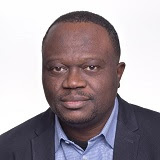A seminar talk will be provided by Dr Aimé Lumaka, a Professor of Genetics and Pediatrics at the University of Kinshasa (DR Congo), the Coordinator of a Genomic Medicine platform at the University of Liège (Belgium). This intriguing talk will be 40 to 50 minutes long followed by 10 to 15 minutes of Questions & Answer as well as Discussion.
8am EST/ 5am PDT / 1pm UTC / 3pm CET/ 2pm WAT /2pm LT/ 3pm CAT / 4pm EAT
Next generation sequencing is revolutionizing rare diseases medicine. The pace of gene discovery and orphan drugs has accelerated since the implementation of this technology. Despite the successes, this implementation also comes with challenges that are different in depending on the setting : developed versus developing countries. Our talk will explore some aspects of the implementation of Whole Genome Sequencing on both sides of the development threshold.In the first part, we will present the challenge of reducing the time to diagnostic for critically ill pediatric patients using the rapid whole genome sequencing. Genetic diseases are an important cause of hospital admission and death for small infants. Whole Genome Sequencing in a short turnaround time (rapid WGS, rWGS) represents a valuable exploration in critically ill pediatric patients as it can significantly shorten the diagnostic odyssey while allowing to explore SNVs, CNVs, mitochondrial DNA and microsatellite from the same data. We combined a high-throughput NGS platform with cloud-based computing data analysis services to evaluate the feasibility, time to diagnostic, yield, and utility of rWGS in Belgium in 18 trios and 2 duo since February 2020. We also explored the usefulness of the molecular diagnostic. In the second part, we will discuss the challenges of the implementation of the clinical Whole Genome Sequencing in the first 45 patients included in the iHope Program in the DR Congo.
Dr Aimé Lumaka graduated from the Medical school (2005) and specialized in Pediatrics (2012) at the University of Kinshasa (DR Congo). He later obtained his PhD degree in Human Genetics and Genomics at the KU Leuven (Belgium). After working for 2 years in a genome interpretation company, he joined the University of Liège in 2018. Dr Lumaka is Professor of Genetics and Pediatrics at the University of Kinshasa (DR Congo), the Coordinator of a Genomic Medicine platform at the University of Liège (Belgium).
His current work focuses on the use of Whole Genome Sequencing as the tool to foster the identification of novel rare diseases genes and improve care for rare diseases patients, especially in resource-limited countries. Dr Lumaka is currently a clinical consultant in genetics at the University hospitals of Liège (Belgium), the chair of the Rare Diseases Working Group of the H3-Africa consortium and the Director of the Reference Center for Rare and Undiagnosed Diseases in the RD Congo. His contributions to science also include the (1) identification of genetic anomalies causing developmental diseases in African patients, (2) description of African phenotype in known genetic diseases and (3) identification of genetic modifiers of the phenotype and treatment response in Sickle Cell Anemia.





